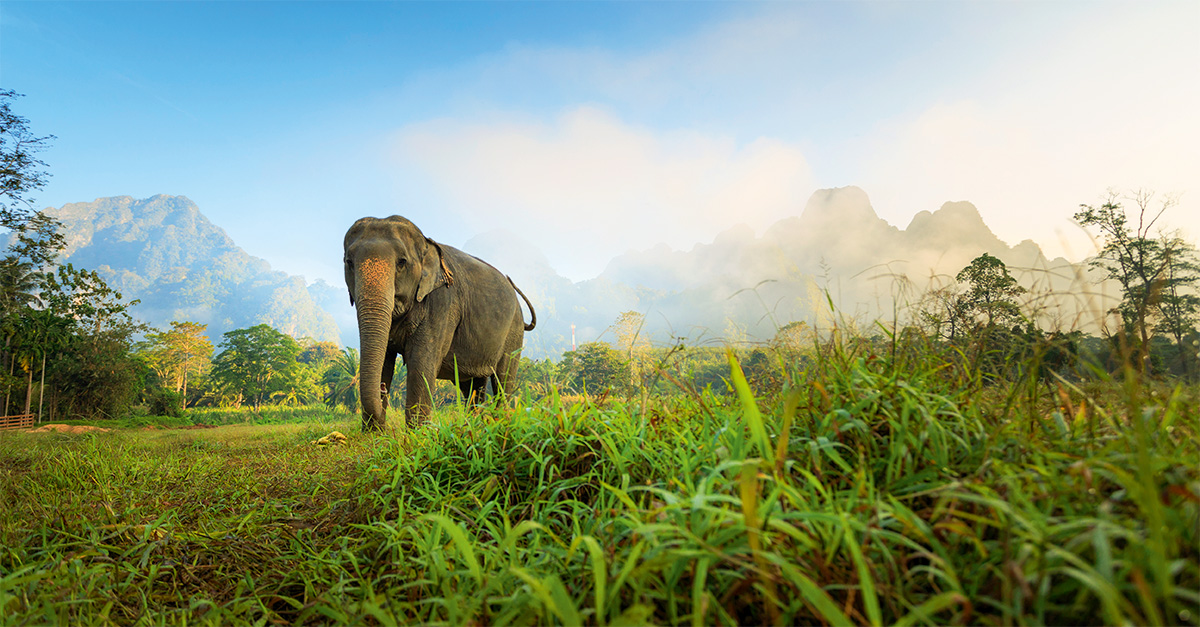Canadian experiences rooted in Indigenous culture can be rewarding provided they benefit communities – here’s what you can do to make positive choices
Seeing a rugged Canadian landscape through the eyes of its First Peoples is a highlight of any traveller’s experience – in fact, it would be an oversight to plan a trip to Canada without acknowledging and honouring its Indigenous communities.
From learning about the area’s earliest inhabitants to exploring the modern relationship between Indigenous peoples and other communities, there are many ways to ensure both the visitor and Indigenous community enjoy a mutually beneficial experience.
The Indigenous Tourism Association of Canada (Itac) has outlined an ambitious plan for Indigenous tourism experiences to contribute the equivalent of £3.3 billion to Canada’s GDP by 2030 – a significant uplift from its 2019 peak of just over £1 billion – which would see Canada become the global leader in offering experiences of this kind.
Agents can play a critical role in supporting authentic Indigenous businesses. So if you’re new to selling this type of activity, here’s how to get started.
1. Look for reliable accreditation
The easiest way to find responsible Indigenous tourism opportunities is via the Destination Indigenous website (destinationindigenous.ca). Alternatively, look for Itac’s ‘Original Original’ label on your prospective supplier’s website – this means that the business is at least 51% Indigenous-owned, and guided by ancestral principles of authenticity and respect for the land, as well as being ready for the international market.
Candace Campo, co-owner and operator of Vancouverbased Talaysay Tours, says: “We like to meet with our partners, so we can learn more about their clientele. We share our [shíshálh and Squamish] cultural protocols and how our business fits into these protocols. There are some bigger companies that hire an Indigenous employee to offer an experience, but the large company is profiting off Indigenous culture and community. We feel this is an extractive business practice.”

2. Use the correct language
Using outdated terminology can reinforce colonial attitudes. For example, First Nations used to be a common catch-all term for Indigenous people in Canada, but it excludes those of Métis (mixed Indigenous- European) or Inuit heritage.
Tamara Littlelight, Itac’s director of marketing, says: “Terms like ‘Indigenous’, ‘First Nations’, ‘Métis’ and ‘Inuit’ should be used correctly to reflect the diversity of Indigenous peoples in Canada.
“It’s also important to avoid stereotypes or generalisations, and to highlight the opportunity for engagement and learning. Phrases such as ‘immersive cultural experience’, ‘authentic Indigenous storytelling’ or ‘community-led tourism’ reflect the values of respect and partnership.”
Where possible, ask how your potential supplier would like to be described, whether by national affiliation or another term.
Páqemúl Shelby Dan, cultural ambassador for the Squamish Lil’wat Cultural Centre in Whistler, says: “Respectful, inclusive language that captures the authenticity and cultural significance of Indigenous experiences is important, along with avoiding stereotypes or tokenism. We avoid using terms such as ‘Indigenous-themed’ and prefer terms such as ‘Indigenousinspired’ and ‘Indigenous-led’.
“Travel agents should look for experiences that are culturally authentic and have a positive economic and social impact on First Nations communities.”
3. Choose a reputable tour operator
A tour operator with in-depth knowledge of Canada is an invaluable resource in searching for sensitively chosen Indigenous experiences to recommend. Stuart Rogers, head of product at Canadian Affair, says: “Our sales of Indigenous product go directly to the end supplier, either through direct contracting or bookings through a regional tourism organisation. There are no other parties involved in our transactions.”
Denise Hunn, Canada and USA programme manager at Prestige Travel, adds: “We have a responsibility to make sure we’re presenting Indigenous experiences in the right way. To find out about experiences to include on our itineraries, we use Itac and regional organisations, and go to marketplaces to see the new product coming on to the market.”
4. Don’t be afraid to ask questions
If you’re keen to learn more about an experience, don’t hesitate to contact the provider, and sign up for Destination Canada’s agent training programme, which includes a module dedicated to Indigenous experiences (canadaspecialist.co.uk).
Heather Stevens, manager and senior heritage interpreter at Millbrook Heritage Centre in Nova Scotia (a Mi’kmaq organisation featured on Insight Vacations’ Landscapes of the Canadian Maritimes itinerary), says: “At Millbrook, no question is ever treated as inappropriate. We love having guests in our centre. They not only learn from us, but we also come away with a lesson or two of our own.”

Book it:
Insight Vacations’ 11-night Landscapes of the Canadian Maritimes itinerary costs from £4,118, departing September 27, 2025. The price includes B&B accommodation, some meals, private transfers and a visit to Millbrook Heritage Centre, but excludes flights.
insightvacations.com
Prestige Travel’s eight-night Whales and Bears of Canada’s Pacific Coast starts at £2,999, including transfers, B&B accommodation, excursions and flights departing May 10, 2025.
prestigetravel.co.uk
Canadian Affair’s 14-night Islands, Bears and Sunshine trip starts at £4,899, departing May 10, 2025. Includes flights, B&B accommodation, some meals, car hire and transfers, with three nights at Klahoose Wilderness Resort, including Indigenous-led activities.
canadianaffair.com
Top tip
Itac offers a range of resources to assist agents in promoting Indigenous experiences effectively
indigenoustourism.ca/travel-trade
4 of the best: Indigenous-owned businesses
❂ Klahoose Wilderness Resort in British Columbia is Original Original-certified and offers Indigenous-led whale-watching tours (pictured) and weaving workshops.
❂ Under the Stump offers Mi’kmaq-led off-road tours of Gros Morne National Park in Newfoundland, which are bookable through Journeyscape, the North America-focused sister brand of Journey Latin America.
❂ The Squamish Lil’wat Cultural Centre in Whistler is the area’s primary Indigenous-owned organisation and employs youth ambassadors from the Squamish and Lil’wat nations.
❂ Warrior Women is a mother-daughter Cree tour operator offering beading workshops, fireside chats and plant walks and is featured on some Trafalgar tours.
PICTURES: Indigenous Tourism Association of Canada; Logan Swayze; Dolf Vermeulen




